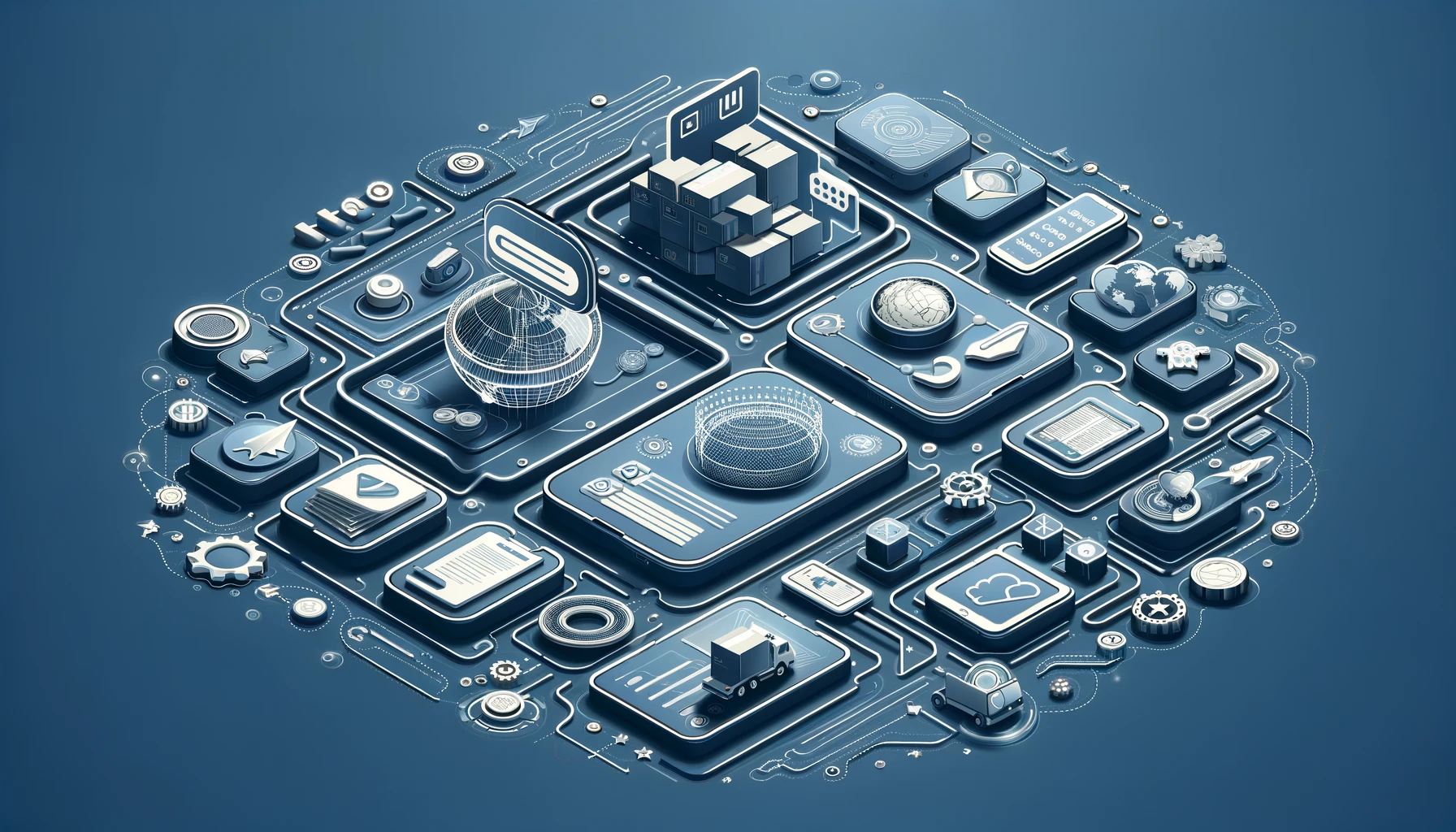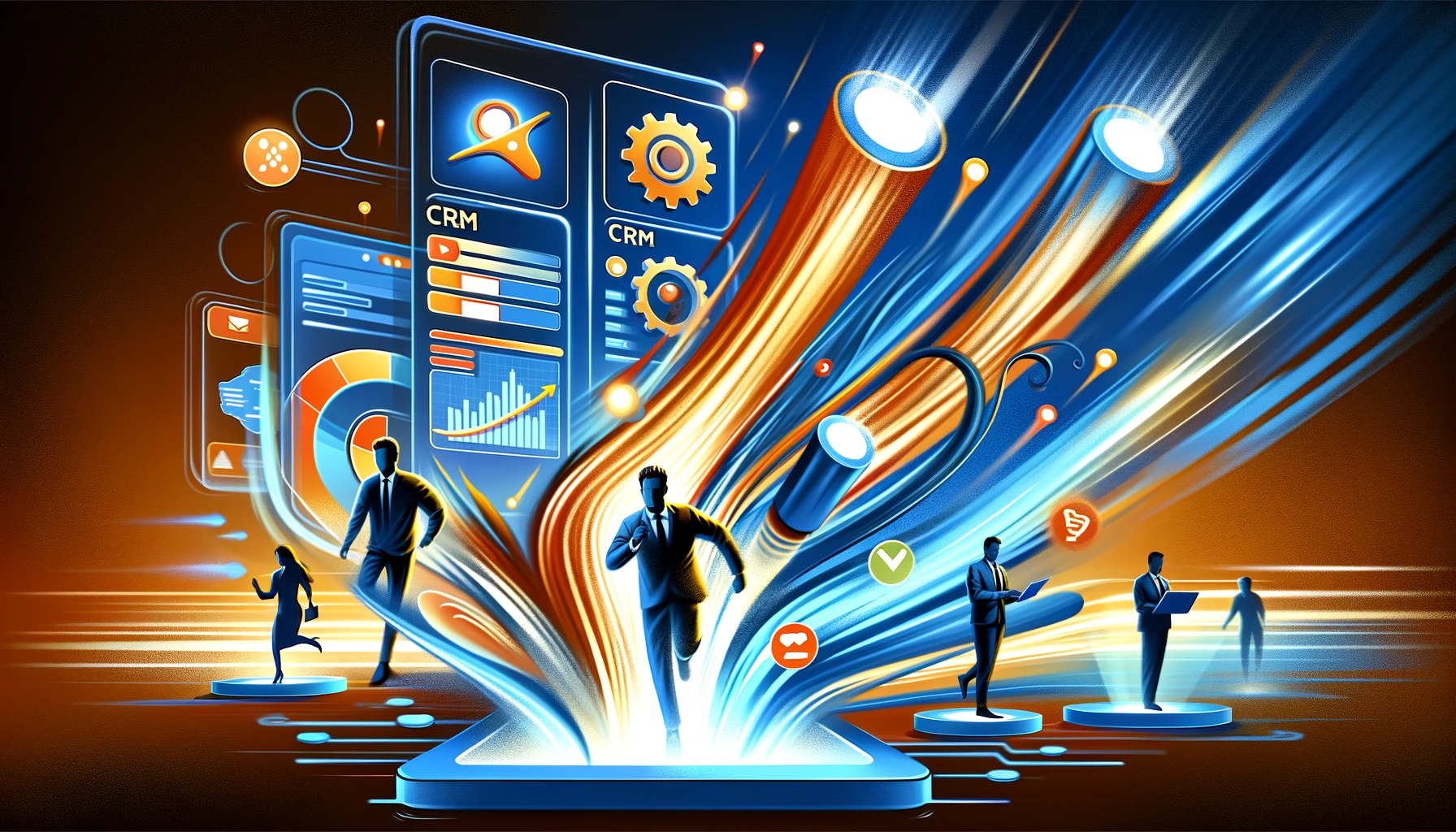Is CRM a Database? Exploring Customer Management

Discover the role of CRM beyond just a database for effective customer relationship management.
CRM Systems: More Than Just Databases
When pondering the question, “is CRM a database?” it’s crucial to understand that while a CRM indeed stores data, it’s the tip of the iceberg. CRM systems are dynamic tools that do much more than house information; they are the engines that drive customer engagement and streamline business operations.
At the heart of a CRM, you’ll find a sophisticated database that holds crucial customer details. But what sets it apart is its ability to foster relationships. Here’s how:
- Interaction Tracking: It logs every interaction, providing a comprehensive history that can be referenced to personalize future communications.
- Automation: CRM systems automate tasks like follow-ups, ensuring that no customer falls through the cracks.
- Analytics: They offer powerful analytics tools, turning raw data into actionable insights.
- Integration: CRMs can integrate with other software it company tools, creating a seamless workflow.
By leveraging these capabilities, your company can enhance customer satisfaction and drive growth. Let’s look at a comparison table that highlights the transformational impact of implementing a CRM system:
| Metric | Before Implementation | After Implementation | Improvement |
|---|---|---|---|
| Order Processing Time (hours) | 24 |
8 |
-66% |
| Order Error Rate (%) | 10 |
2 |
-80% |
| Customer Satisfaction Score (out of 10) | 7 |
9 |
+28.6% |
| Inventory Management Efficiency (%) | 65 |
90 |
+38.5% |
A CRM is not merely a repository; it’s a comprehensive customer management definition system that transforms how you interact with your clientele. So, when you leverage a CRM, you’re not just accessing a database; you’re engaging with a tool that can significantly elevate your customer relationship game.

With a CRM, you have a robust platform that supports your business in delivering exceptional customer experiences, proving that it is so much more than just a database.
The Multifaceted Nature of CRM Explained
Delving deeper into the multifaceted nature of CRM, it becomes apparent that these systems are instrumental in unifying various aspects of your business. From sales strategies to customer service excellence, a CRM is a linchpin that holds together the diverse functions of your company.
Consider these key features:
- Sales Pipeline Management: A CRM organizes and tracks every stage of the sales process, boosting efficiency and conversion rates.
- Marketing Automation: Streamline your marketing efforts, ensuring targeted campaigns reach the right audience at the right time.
By embracing the full spectrum of CRM capabilities, your business can foster deeper connections with customers and streamline internal processes. It’s a strategic tool that not only stores data but also acts as a central hub for enhancing operational efficiency and nurturing customer relationships.

Remember, a CRM is not just about data storage—it’s a comprehensive suite that propels your business forward, making it an indispensable asset for any forward-thinking company.
How CRM Goes Beyond Simple Data Storage
Exploring beyond the surface reveals that CRM’s essence lies in its ability to empower businesses with more than just data storage. It’s a versatile platform that enhances customer interactions, facilitates marketing automation, and optimizes sales strategies. Here’s what sets CRM apart:
- Personalization: With detailed customer profiles, businesses can tailor experiences, making each interaction feel unique and valued.
- Collaboration: Teams can collaborate effortlessly, with shared access to customer data and communication histories.
- Strategic Insights: CRMs analyze data to identify trends and opportunities, guiding strategic decisions that drive success.
A CRM system is a powerful ally in understanding your customers’ needs and behaviors, proving it’s much more than a static database. It’s a dynamic tool that actively contributes to your company’s growth and customer satisfaction.

By harnessing the full potential of CRM, your business can achieve a competitive edge. It’s time to recognize that CRM is a database and so much more—it’s an integral part of the modern business ecosystem.
The Business Advantages of CRM Integration
Integrating a CRM into your business operations unlocks a world of efficiency and customer insight. This isn’t just about managing contact details; it’s about creating a cohesive ecosystem where every piece of customer data works together to enhance your customer relationship model. By integrating CRM, you can expect:
- Streamlined Operations: Data flows seamlessly between departments, ensuring everyone is on the same page.
- Enhanced Customer Service: Quick access to customer histories enables personalized and efficient support.
These advantages lead to a more integrated business solutions approach, positioning your company to respond swiftly to market changes and customer needs. CRM integration is the key to unlocking a proactive, customer-centric business strategy.

Embrace CRM integration and watch as your business operations transform, delivering not just data management, but a comprehensive platform for growth and customer engagement.
Real-life Examples of CRM Transforming Customer Engagement
The power of CRM systems to revolutionize customer engagement is not just theoretical; real-world examples abound. Businesses across sectors have seen remarkable transformations after embracing CRM solutions. For instance:
- A retail giant personalized their marketing, resulting in a 15% uptick in customer retention.
- A tech startup used CRM to streamline its customer service, slashing response times by ~50% and boosting satisfaction scores.
These scenarios underscore the role of CRM as a catalyst for fostering strong customer bonds and driving business growth. By implementing CRM, companies can anticipate customer needs, deliver timely solutions, and build lasting relationships.

As you delve into the CRM world, these stories can inspire and guide your journey towards enhanced customer engagement.
A Beginner’s Guide to Understanding CRM Functionality
Embarking on the CRM journey can feel daunting, but understanding its functionality is simpler than you might think. At its core, CRM is designed to manage and analyze customer interactions throughout the lifecycle, with the goal of enhancing relationships and driving sales growth.
Here’s a quick snapshot of what CRM can do for you:
- Contact Management: Centralizes customer information, making it easily accessible.
- Task and Event Tracking: Keeps you on top of customer-related activities.
By harnessing these features, you can ensure that every customer feels heard and valued. And remember, a CRM is not just a static collection of data; it’s a living, breathing tool that evolves with your business.

Dive into CRM functionality, and you’ll find it’s an indispensable tool for nurturing customer connections and driving business success.
FAQs
Is CRM just another term for a database?
No, CRM is not just a database. While a CRM system does include a database to store customer information, it is a more comprehensive tool designed for managing relationships with customers, tracking interactions, and automating various sales and marketing processes.
How does a CRM database differ from a traditional database?
A CRM database is specialized for customer relationship management and includes functionalities such as contact management, sales pipeline tracking, and interaction history. A traditional database is a more general-purpose tool that can store a wide variety of data without the specific features tailored for managing customer relationships.
Can a CRM system help in analyzing customer data?
Yes, a CRM system can help in analyzing customer data by providing tools for segmenting customers, tracking sales trends, measuring campaign effectiveness, and generating reports that help businesses understand customer behavior and preferences.
What types of data are typically stored in a CRM database?
A CRM database typically stores data such as customer contact information, communication history, purchase records, service requests, lead sources, sales opportunities, and notes from customer interactions.
Is it possible to integrate a CRM system with other databases or software?
Yes, most CRM systems can be integrated with other databases or software such as email platforms, accounting software, and enterprise resource planning (ERP) systems to provide a more unified view of customer information and streamline business processes.
Read more about low-code platform ozma.io
CRM for Beginners: Easy to Start!
CRM for Photographers: More Clients and Efficiency





